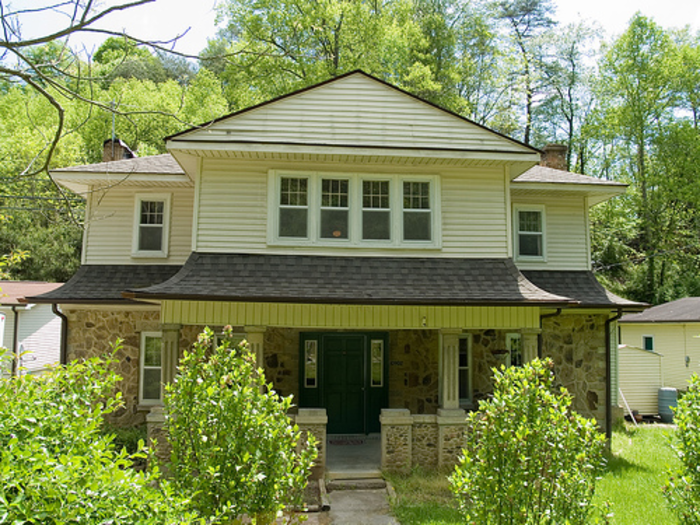- Home
- slideshows
- miscellaneous
- The average cost of getting divorced is $15,000 in the US - but here's why it can be much higher
The average cost of getting divorced is $15,000 in the US - but here's why it can be much higher
Court filing costs

Attorney fees

According to Thumbtack, attorneys charge a minimum of $1,000, on average, for an uncontested divorce. However, attorney fees are often relative to exactly how long it takes for the divorce to go through, from filing until completion. Uncontested divorces tend to go through at a much speedier rate. Nolo reports that the average length of time it takes to get divorced is around 11 months — if your divorce takes less or more time, this may affect the cost.
Business Insider spoke to Jacqueline Newman, Managing Partner at Berkman Bottger Newman and Schein, LLP in New York City. Newman specializes in divorce law, especially in regards to prenuptial agreements and high-income divorce settlements and proceedings.
She explained that the longer it takes for a divorce to go through, the higher your attorney fees will be.
"Divorce as a whole is really expensive. Then, when you're dealing with counsel fees, that's a whole new level of expense. It depends on how much people want to fight. A line I use to clients when they come in and they tell me they want to fight is, 'Would you rather pay for your kid's college or mine?'"
Hiring an attorney to help you fight a contested divorce can cost anywhere from about $2,500 to several thousand dollars, on average, or more. Going to court almost always adds costs and time to divorces. Nola reports that while divorce cases that settled out of court took an average of 9 months to complete, cases that went to court on any issues lasted an average of 17.6 months.
Newman also explained that most cases settle. In fact, more than 90 percent of divorce cases settle prior to going to trial. "It's just a question of whether it will settle now before you spend tens of thousands or even hundreds of thousands in legal fees, or if it's going to settle later," she says.
Mediation fees

Mediation can save you money or add costs to your divorce, depending on how you use it. Mediators can sometimes be used in place of an attorney so you and your partner can civilly decide how you want to split up your assets and come to a settlement agreement without going to trial. Depending on where you live, a professional mediator may charge $100 to $200 per hour — this can end up costing roughly half of what an attorney would charge.
However, if the mediation proves unsuccessful and you still need to hire an attorney or go to trial, mediation fees can simply become an added expense.
Other added expenses can highly increase the overall average cost of divorce

Divorce comes with a laundry list of added expenses you may have never considered. Parent education classes, counseling sessions or psychiatric evaluations, and other added costs can dig you into a hole of financial turmoil. The average cost of a parent education class could range anywhere from $85 to $350. The cost for private counseling or therapy can range from $50 to $240 for a one-hour session.
If you and your spouse own property together, the cost of divorce can rise even higher

Many couples struggling to either cover the cost of their divorce or change the home's ownership or mortgage moving forward will choose to refinance their home. Lenders can charge anywhere between $100-$300 for a loan application fee, plus other fees to appraise the home. You should also expect to pay document fees ($200-$400), title search fees ($200-$400), recording fees in order for the refinance to appear in public records ($25 to $250), home inspection fees ($300-$500), and the cost to perform a home survey ($100-$300), which documents the boundaries of the property. You may also need to hire an outside attorney in order to refinance your home during a divorce. This will cost an average of $300-$1200.
The average closing costs to refinance a standard mortgage loan in 2017 was 1.5%. Two factors that affect this cost can be your credit score and the type of loan you're trying to get. According to The Lenders Network, on a $200,000 mortgage, the average closing costs will come out to 1.5%, or $3,000.
Other couples going through a divorce may choose to sell their house and buy two separate homes. This can end up being extremely expensive, as buying and maintaining two homes may be more expensive than owning one larger family home. In the end, you may not break even after selling your home once you have to purchase two other properties.
Make sure you have all the available financial information and arm yourself with a financially-knowledgeable team

When it comes to getting divorced and handling the financial burdens and pitfalls of the process, experts will tell you that knowledge is power.
"I'm a big advocate of being as educated as you can be going through a divorce. If you're dealing with somebody who is not necessarily financially savvy or has lived the marriage in the financial dark — has no idea what's going on — I think it's very important to involve financial advisors early on in the process," Newman said. "Seek the advice of accountants and other professionals to create your own financial team. This will allow you to be in a place where you understand what you're agreeing to and what the [financial] ramifications would be after the divorce."
Another way to equip yourself with as much information as possible prior to getting a divorce is to have a prenuptial agreement set in place. Prenuptial agreements are a way to know what you would receive or give up if you and your partner were to get a divorce. Jacqueline Newman explains that while prenups are not ideal for every marriage, they can be extremely beneficial if, down the line, a divorce happens.
"Most often in prenuptial agreements, you will deal with the financial ramifications of a divorce. Asset distribution will be determined, sometimes spousal support will be determined, so that can absolutely streamline a divorce," she explains. "Things that are not addressed in prenuptial agreements are anything related to the children, such as child support and custody."
Newman also explains that prenuptial agreements can potentially alleviate anxiety surrounding how a divorce will play out financially.
"A lot of people want prenuptial agreements, even if they don't have a lot of money, just to have as much certainty as possible upon a divorce. Part of the reason that many people don't get divorced is because of just not knowing what's going to happen. If you are in a financial situation where things are laid out outside of any child issues, you're in a better position to anticipate what a divorce would look like if you did decide to move forward with one."
Divorce costs don't end after you sign on the dotted line

The costs associated with divorce don't end after the divorce is finalized. Whether it be through alimony payments, the costs associated with dividing a household, or the financial ramifications of the divorce itself, many individuals still find themselves paying years down the line.
Alimony payments are largely based on income, as well as how the assets and children were divided during the divorce. In divorce law, alimony is provided in order to maintain "the standard of living established during the marriage," oftentimes when individual income after the divorce will differ greatly from income during the marriage. For instance, if a man earns $5,000 and his spouse earns nothing, she will most likely be awarded alimony and child support from his income after the divorce. In the end, approximately half of your monthly income could potentially go to your ex-spouse.
Dividing one household into two also comes with its own hidden costs. Divorced individuals will be paying for everything separately — two homes, two cars, two sets of furniture, two insurance plans, multiple phone bills, etc. Taxes also differ greatly, and may be harder on your wallet, explains Jacqueline Newman.
"Divorce is very expensive. Beyond the fact that it's obviously more expensive to have two households than one, you add onto that," says Newman. "Filing jointly is usually the best tax bracket, and now you're going to be filing separately, which is expensive. Tax deductions are different. You don't get certain exclusions from capital gain. Divorce as a whole is really expensive...When you think about the cost of divorce, it's not just about legal fees. It's about all the differences in how your lifestyle is going to be."
When it comes to your and your family's future happiness, however, the cost of divorce is usually well worth it in the end.
- Read more:
- Jeff Bezos' divorce could rank among the most expensive of all time — here are the 10 most expensive divorces ever
- The 12 biggest money-related reasons people get divorced
- Couples who go into wedding debt are more likely to consider divorce
- Why are millennials abandoning divorce? Sex, money, and their parents
Popular Right Now
Popular Keywords
Advertisement